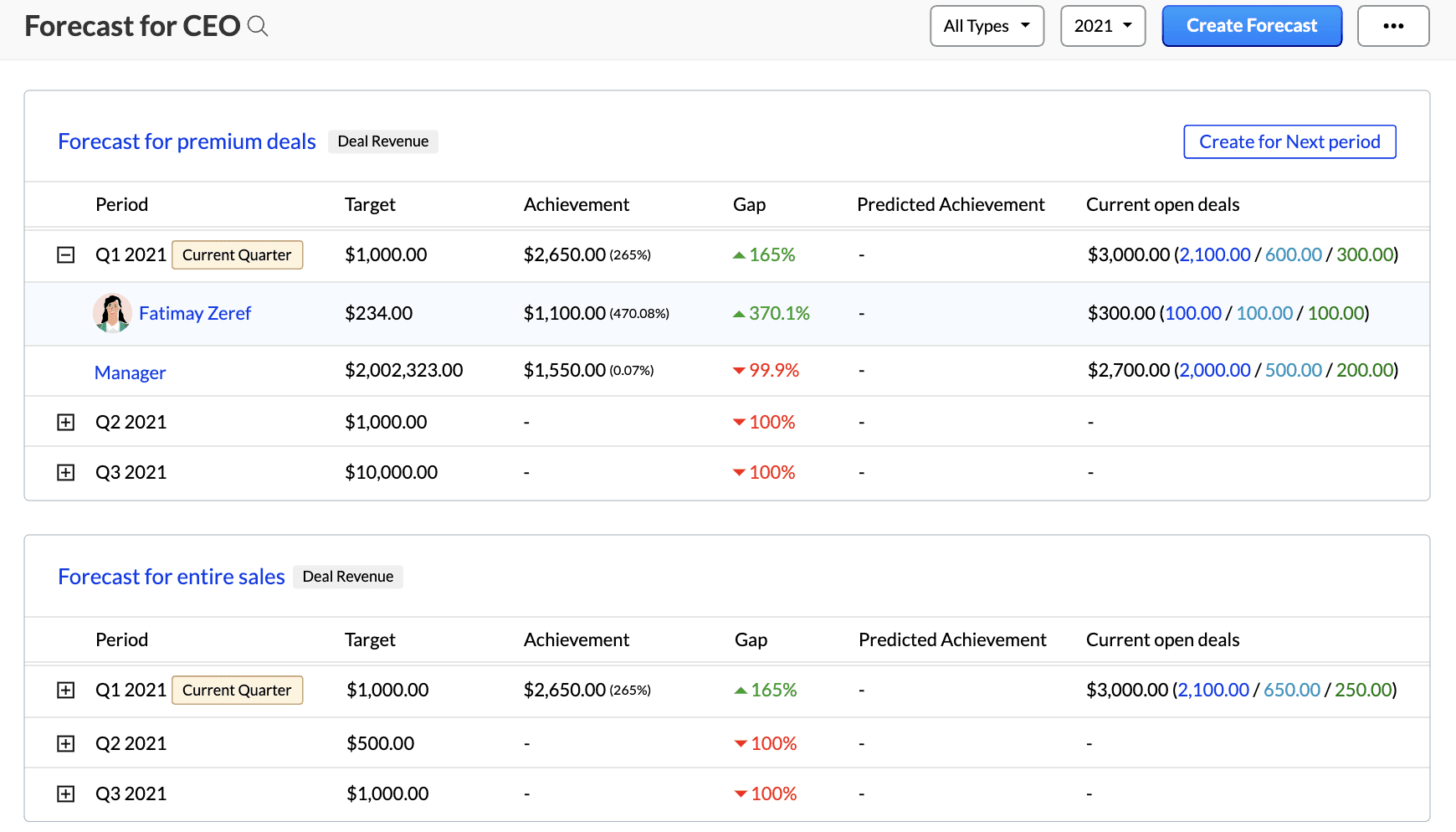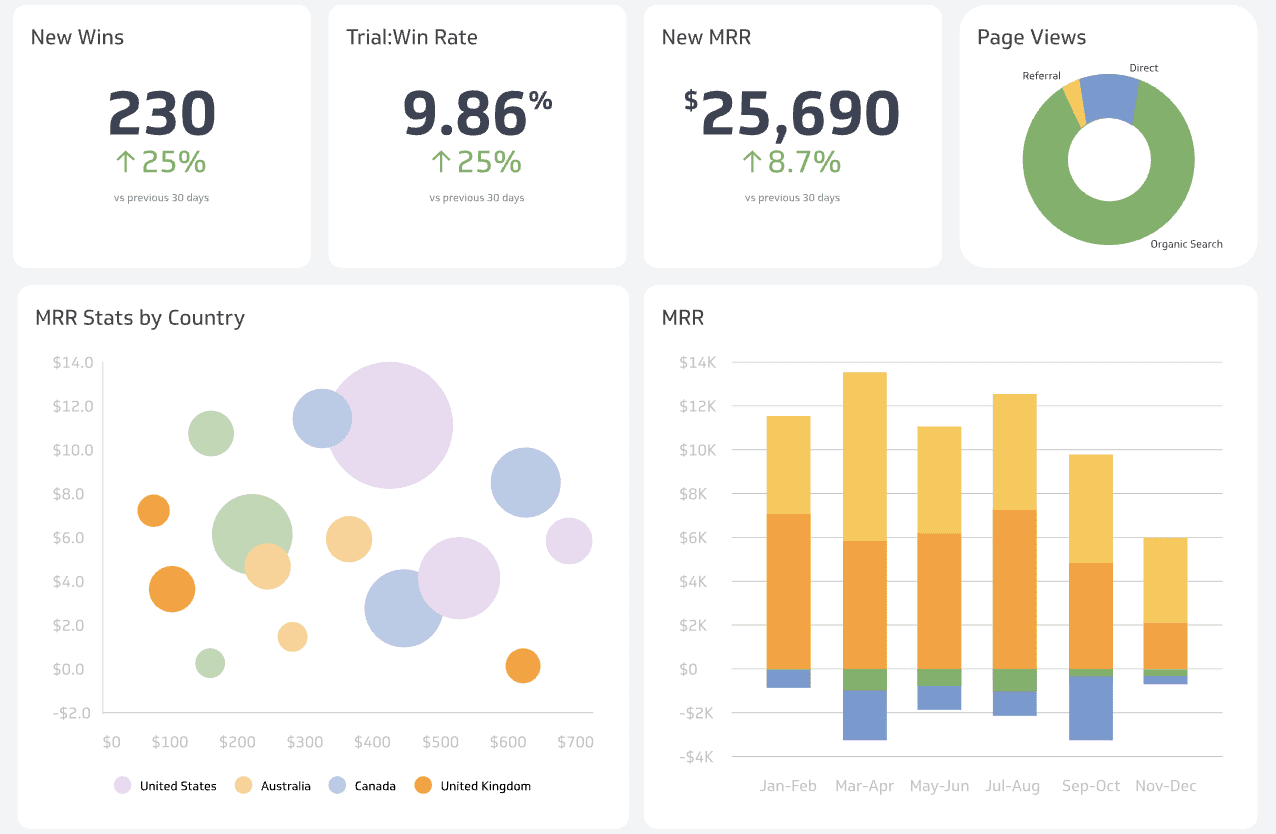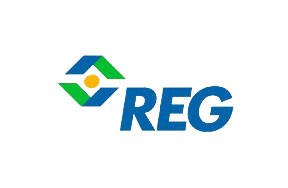
With the increase of ever-evolving sales tools, big data, and cloud tech, sales operations have become an essential part of an organization’s success.
No matter the size of your business, sales operations automate manual tasks, improve productivity, and empower sellers to get back to what’s most important — selling.
In this article, we’ll review what sales operation is, why it’s important to your company’s success, and how to build your sales ops team.
What Is Sales Operations?
Sales operations is a collection of company sales objectives, strategies, processes, and tech support that enable key players and processes to operate efficiently, productively, and in alignment with business goals.
Done right, sales operations stand as the backbone of every organization. The purpose of the sales ops team, whether it’s one person or a few dozen, is to increase sales productivity and success in a scalable and sustainable way. This is done by reducing friction in the sales process so salespeople can focus on the activities that lead a customer to close.
With strategically implemented training, technology, and engagement techniques, sales ops empower sales reps to focus more on building and nurturing client connections.
Sales Operations vs Sales Enablement
Sales operations and sales enablement are similarly related concepts in that both aim to significantly improve sale team performance. Because of their similarities and assumed overlap, their unique responsibilities may create some confusion.
Sales enablement
Sales enablement focuses on providing your sales teams with the best sales content, strategies, tools, and other selling resources to help them be successful. Effective sales enablement tools and content places the focus on the buyer, helping sales reps target the right people and increase engagement.
Sales ops
Sales ops, on the other hand, focus on the entire organization – the product, sales playbook, processes, structure, technologies, human resources, and more. Sales ops specialists are often liaisons for sales to other departments such as finance, marketing, legal, QA, and IT. They wear many hats and work with several teams on a regular basis.
Contrary to common belief, the two concepts do serve unique purposes. That doesn’t mean, however, that these two teams should work alone or in silos. Often, sales ops and sales enablement teams report to the same head of sales and share responsibility for overseeing the performance of sales in their areas of expertise.
Why is Sales Operations Important?
More and more companies are forming sales operations teams, and for good reason. Sales operations is considered an essential contributor to business operations, functions, and overall success.
In fact, as of December 2023, a staggering 87% of ‘Cloud 100’ companies employ sales enablement or revenue enablement professionals, as reported by Qwilr. This highlights the increasing recognition of the integral role that sales operations and enablement play in driving organizational success.
Sales ops support the efficiency and motivation of your sales team by managing:
- Administration of CRM and other tools
- Sales documentation and standard operating procedures (SOPs)
- Process improvements
- Internal communications
- Automation for tedious tasks
- Review of external/customer-facing communications
Sales ops also support and enable sellers to deliver more value when it comes to achieving results. In this regard, sales ops can handle the responsibility of:
- Sales methodology
- Market training
- Product training
- Sales onboarding
- Recruiting & talent management
21 Key Functions & Responsibilities of Sales Operations
With the support of sales operations, sales teams and companies as a whole can perform better, hit goals faster, and navigate sales processes with intention. Senior sales managers and other key leaders can leverage sales ops data to learn more about their sales activities to make them more effective.
Given that sales operations represent several functions within a company, sales ops managers and their teams have unique responsibilities. The key functions and responsibilities of sales operations can be generally divided into four categories – strategy, technology, operations, and performance.
- Sales process
- Sales forecasting
- Territory definement
- Team organization
- Research and evaluation of new sales tech
- Integration to applications and tools
- CRM adoption
- Automation
- Sales IT application support
- Communication strategy
- Recruiting and hiring
- Onboarding
- Sales training
- Sales support
- Contracts and SLAs
- KPIs and metrics
- Data analytics
- Sales methodologies
- Performance support
- Sales incentive plans
- Lead management
Sales Strategy Responsibilities
Sales ops use a combination of internal data and external market and competitor research to build sales strategies that achieve sales goals. Your strategy serves as the foundation of your sales approach.
1. Sales process management
You likely already have a sales process in place for your organization. But simply establishing a sales process won’t cut it – you’ll need to consistently monitor and manage your sales process to ensure it’s working for you and make improvements when things aren’t working.
Sales process management allows businesses to accurately forecast performance and identify problem areas that are hindering your team from achieving their targets.
2. Sales forecasting
Understanding performance data allows sales ops to predict future sales trends and report on future goals and needs. This is a critical part of sales because it empowers sales teams to identify potential issues while there’s still time to fix or even avoid them.
Without proper forecasting, an organization can spend too much that it loses on margin, or spend too little to miss on sales. Forecasting can help sales teams succeed depending on your outlook of possible sales in the coming months or quarters.
3. Territory definement
Sales operations teams are typically responsible for defining and assigning out sales territories to sellers. Territories often define sales reps’ prospect options, commission, and even work hours, so it needs to be handled intentionally and thoughtfully.
4. Team organization
Sales operations influence the organizational structure of sales teams to maximize the performance, efficiency, and results of their employees.
Sales ops teams may observe that certain reps have more success working with small business customers, while others excel at working with enterprise-level organizations. Because of this, sales ops may choose to restructure the team so that each rep is working with the customers they are more suited to support and nurture.
Sales Technology Responsibilities
There has been a significant and undeniable rise in the growth of SaaS applications and other sales tools in recent years. While data and technology can better empower sales, the complexity of multiple platforms can overwhelm sales reps, which can be more of a burden than a benefit.
That’s where sales ops comes in. Part of their job is to manage the technology stack so sales reps can focus on leading a prospect through the buyer journey.
5. Research and evaluation of new sales technology
Researching, evaluating, and driving sales technology adoption are important roles in sales ops. Teams can work smarter instead of harder by utilizing tech that enables their workflow and supports them as they nurture leads and offer ongoing support to customers.
Examples of the types of sales tools that are evaluated and managed by the sales operations team includes:
- Contract Lifecycle Management (CLM) software
- CPQ software
- CRM software
- E-signature software
- Lead management software
- Sales enablement tools
- Sales intelligence software
- Sales training applications
6. Integration to applications and tools
Sellers need to be able to easily maneuver between applications and tools during their workflow. That’s why sales operations teams prioritize application and tool integration.
Integrating tools and applications that are scattered across various platforms helps teams deliver the insights, actions, and results needed to take performance to the next level.
7. CRM adoption
CRM software is complicated, and your salespeople simply don’t have time for complex workflows. CRM tools should make their lives easier, and that’s exactly what sales ops is for – meaning a strategy for CRM adoption is one of the operations team’s core functions.
Sales op specialists manage CRM implementation and CRM training for your sales team, empowering your reps will the skills to utilize it to its fullest potential. They may also ensure that the data is presented clearly, maintain your database, and monitor the CRM to maintain its efficacy.

8. Automation
Not only do manual, tedious processes rob sellers of time they could have spent selling, but they’re also bad for morale and often lead to avoidable – and expensive – mistakes. Prevent these unnecessary mistakes with sales automation.
Sales ops support the utilization of technology and tools that automate processes for your sales team. This technology could include sales software, CRM software, email automation software, or lead prioritization engines.
9. Sales IT application support
Sales reps are most effective when they have the right kind of support. IT’s role has evolved from simply being a service department into a strategic collaborator as sales reps face more pressure than ever to deliver an enriched prospect experience – making sales IT application support an absolute necessity.
Focus on and implement the necessary support tools for your sales team with the help of your IT department. Sales teams equipped with the IT support they need limits the friction they may face throughout the sales process.
10. Communication strategy
Sales operations keep key players and teams aligned by reporting on sales and campaign performance and communicating sales wins and opportunities.
Teams may do this by establishing communication channels, such as MS Teams, Slack, or another team collaboration and communication platform, or setting up weekly check-in meetings to realign and reconnect. Similarly, they may use your CRM to support data and information sharing across your sales organization.
Software clicks better with Whatfix's digital adoption platform
Enable your employees with in-app guidance, self-help support, process changes alerts, pop-ups for department announcements, and field validations to improve data accuracy.
Sales Operations Responsibilities
Sales ops support performance throughout organizations by managing both operational and administrative tasks. With the help of data analysis and process optimization, sales ops teams can lead training, hiring, and knowledge management initiatives to ensure sales reps have the information and skills they need to succeed in the field.
11. Recruiting and hiring
There is far more overlap with sales ops and human resources than people realize. Sales ops teams understand the structure and performance of your company better than anyone, including both the strengths of your sales team as well as skill and experience gaps. They also work closely with several other departments in your company, making them qualified to have a say in recruiting and hiring decisions.
12. Onboarding
Once a hire is made, sales op specialists continue to guide new hires through their onboarding process. Their knowledge of tools, techniques, and training means they know what your sellers need to know and can coach them accordingly. They can act as a point of contact to support, educate, and empower new hires as they get acclimated.
13. Sales training
To support and manage a successful sales team, sales ops often take on the responsibility of providing ongoing sales training for current employees. Because they constantly monitor the performance of the business, they’re well-equipped to share their knowledge and coach on best practices. They may also create ongoing mentoring programs to maintain a strong team and boost morale.
14. Sales support
Sales operations teams exist to make sellers and their impact more efficient by offering continuous sales support. They do so by identifying leads, handling transactions, and providing training to build up valuable sales skills. Sales ops may also source various tools and tech to help ease the responsibilities of your sales team.
15. Contracts and SLAs
It’s common to use service level agreements (SLAs) in customer contracts and sales contracts to define the commitments and responsibilities of everyone involved. Sales operations and human resources teams should collaborate in defining and documenting SLAs to ensure leads are consistent and profitable. Sales ops teams can also structure quotes, complex proposals, and other essential operations documentation.
Sales Performance Responsibilities
Sales ops is designed to improve performance and boost productivity by removing barriers and refining processes for sellers. In order to accomplish that, sales operations specialists help streamline processes to accelerate the sales cycle and empower sellers to close more deals more efficiently.
16. KPIs and metrics
KPIs and other preferred metrics differ from team to team and organization to organization. For sales ops, these key metrics provide insight into how to improve performance, boost win rates, and how the entire process can be optimized.
17. Data analytics
A database is a key part of sales operations success. The right data will help you know which products, approaches, and performers are succeeding, where trends are headed, and opportunities to drive performance. Data analytics and reporting help you to evaluate wins and losses, which also help in forecasting and decision making.
18. Sales methodologies
Your sales methodology is a set of principles and best practices on how salespeople approach each step in the sales process. It’s your company’s selling philosophy and defines how you approach your target customers.
19. Performance support
Sales operations may hold regular sales performance reviews or support and coach sales managers on how to conduct reviews for their direct reports. While salespeople focus on closing qualified leads and growing your business, sales operations specialists work on improving how you can do business better through performance support.
20. Sales incentive
Incentives are natural motivators — and sometimes, some “natural motivation” is just what sellers need to perform to the best of their abilities. Meaningful incentives influence behavior in any context, and sales is no exception.
21. Lead management
Sales operations handles administrative tasks like lead generation and appointment bookings so sellers can focus more on nailing their pitch and landing the sale.
One way sales operations do this is by utilizing SLAs to help clarify:
- How sales teams can follow buyer personas
- Where resources like sales enablement tools live
- Who on the sales team accepts marketing qualified leads
The Structure of a Sales Operations Team
Given the variance of organizational structures, outlining the ideal structure for a sales operations team can be a challenge. However, based on the functions and general responsibilities that are typically owned by sales ops specialists, there are organizational models and structural templates that businesses can build from.
Strategy & Design
Strategic operations outline more broad, long-term goals that a business hopes to achieve.
Perhaps you’ve identified that your team needs to optimize specific stages of your sales process. For this, you’ll need people who are skilled in seeing patterns in data and offering strategic solutions on how to adjust your approach.
Tactical & Support
Tactical operations identify more immediate actions that can be taken to achieve the goals outlined in a strategic plan.
An example of this would be setting a goal to integrate a new CRM. This calls for technical experience, so it’s important to hire employees who have a strong technical mindset and prioritize quality control.
If you want to build an impactful sales ops team, hire people who satisfy all competencies, or hire multiple people who satisfy several of them.
7 Best Practices for Sales Operation Teams
Solid sales operations teams improve sales performance and empower salespeople by accelerating the sales cycle and facilitating faster closing. The success of a sales team relies heavily on a sales operations team’s ability to continuously streamline processes. In order to follow suit, you’ll want to make sure you’re following these best practices:
1. Collaborate on strategy
Consistently check in with closely collaborative departments – sales enablement, marketing, and sales – to ensure you’re aligned on your strategy, addressing important issues, and prioritizing the right actions.
2. Collaborate with marketing on messaging
Work with marketing to fine-tune your messaging and content. Given that marketing handles external messaging and sales ops handles internal, it’s critical that both teams are aligned on the message they’re putting out and how it’s being communicated.
3. Optimize sales process
Sales operations can improve an organization’s overall success by optimizing the sales process. Freeing up sales reps and providing them with the best resources to sell allows them to move quickly and act on what’s working.
When provided with proper sales engagement, enablement, and training strategies, sales operations teams give sellers the boost they need to stay ahead of competitors and engage with prospects.
4. Define sales ops and sales enablement teams
The overall purpose of both sales ops and sales enablement teams is the same: to increase sales effectiveness, productivity, and profit. To avoid redundancies and miscommunications in their respective strategies, be sure to define the specific functions and responsibilities for each team and how they can collaborate. By doing so, both teams can operate more efficiently to support each other and the entire sales department.
5. Determine KPIs
Once you’ve established your sales ops team and strategy, you need to define your KPIs to make sure your approach is solid and effective. Identifying your preferred KPIs can help you track the impact of individual performers, each stage of your sales process, your sales enablement strategy, and more.
6. Tools
Equipping your team with the right tools and tech to assist in achieving their goals is essential to the entire team’s success. The right tools and software also ensure the accuracy of both sales forecasting and sales process results.
7. Training
To grow a successful team, sales operations must train both new and current sales reps – it’s not going to cut it to think of training as a one-and-done thing. Sales ops may facilitate various mentoring or coaching programs that encourage strong team bonding and help build rapport internally. Proper training also inspires and increases motivation to tackle new challenges, projects, or methods with determination and confidence.
7 Best Sales Operations Tools
As your organization grows, so too should your tech stack. Deciding which sales tools you should invest in and what they can offer your teams can be difficult to decipher, so we’ve compiled a list of the top seven sales operations tools to try out with your ales ops team:
1. Whatfix
Using Whatfix, you can create guided walkthroughs that direct your sales ops team through your CRM or other software. In doing so, they can learn how to streamline processes and help salespeople work more efficiently in their workflows. Users can collaborate to nurture leads, close deals, and drive revenue without wasting time trying to navigate various platforms on their own.

2. Hubspot
Hubspot offers a variety of resources, including free online analytics tools and a feature-packed CRM. However, they’re widely known for inbound marketing tools that help brands boost prospect reach and engagement. Explore Hubspot to get data-driven insight on how to build and optimize your lead generation campaigns.

3. Clari
Clari is a sales operations tool that uses data to increase efficiency, accelerate sales, improve forecasting accuracy, and make sales teams more productive. From sales forecasting, to pipeline management to revenue intelligence, Clari’s platform makes your entire revenue process more effective.

4. Salesforce Sales Analytics
Salesforce is a cloud-based CRM software that helps organizations manage leads, transactions, and customer support. It incorporates reporting and Analytics in its application suite to gather valuable and actionable insights from customers.

5. Zoho
Zoho offers several features at an affordable price, including email marketing, customer service, lead generation, and reporting. It has a simple and intuitive UI and integrates well with commonly used apps like Google Apps, Microsoft Office, and Quickbooks.

6. Klipfolio
Klipfolio is a self-service analytics software platform that offers a real-time dashboard that allows businesses to automate the monitoring, exploration, and sharing of metrics and KPIs. Users can import and modify data with the data modeler, then segment, filter, and visualize it as desired for clear and precise analysis.

7. SalesHood
SalesHood is an all-encompassing platform designed to help improve sales performance. With its tailored approach to training, coaching, guided selling, and content management, SalesHood is proven to reduce time to ramp, lift quota attainment and accelerate sales.

Sales Operations
FAQs
What's the difference between sales enablement and sales operations?
Sales enablement focuses on providing your sales teams with the best sales content, strategies, tools, and other selling resources to help them be successful.
Sales ops focus on the entire organization – the product, sales playbook, processes, structure, technologies, human resources, and more. Sales ops specialists are often liaisons for sales to other departments such as finance, marketing, legal, QA, and IT.
What are the four sectors of sales ops functions?
- Strategy
- Technology
- Operations
- Performance
How are sales ops teams structured?
Sales ops teams are typically structured into two different subteams:
- Strategy & design
- Tactical & support
Sales operations should ultimately do one thing: help salespeople close more deals faster. As your organization, sales team, and product offerings grow and evolve, forming a sales ops team can help you optimize gains and cut down on inefficient processes and methods of doing business.
Choosing a digital adoption platform such as Whatfix empowers your sales leaders to support your sales ops efforts. With Whatfix, sales ops teams have access to in-app training and support when they need it through walkthroughs, product tours, tooltips, and task lists.
Learn how Whatfix can transform your sales ops team’s productivity by streamlining processes and eliminating manual busywork.

Abby Essing, Sr. Manager, Operations Services at Renewable Energy Group, Inc.
Request a demo to see how Whatfix empowers organizations to improve end-user adoption and provide on-demand customer support
Thank you for subscribing!



